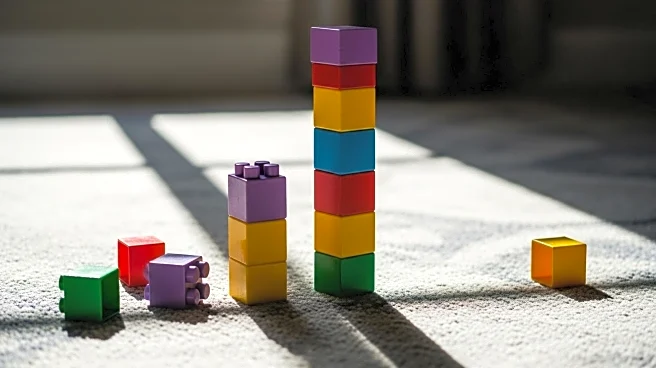What is the story about?
What's Happening?
The UK inquiry into the Covid pandemic has revealed significant disruptions to the 'very fabric of childhood' due to school closures. Clair Dobbin KC, counsel to the inquiry, highlighted the severe consequences faced by children, including the loss of loved ones, exposure to harmful online content, and the deprivation of normal childhood experiences such as birthdays and school events. The inquiry noted that the Department for Education had not planned for school closures before March 2020, leading to a sudden decision to close schools. This lack of preparation resulted in children missing educational opportunities and social interactions, with some suffering from long-term impacts of the pandemic.
Why It's Important?
The findings of the UK inquiry underscore the critical role schools play in safeguarding children's development and well-being. The pandemic's impact on education has broader implications for public policy, highlighting the need for contingency planning in crisis situations. The disruption to children's education and social lives may have long-term effects on their mental health and future prospects. This situation serves as a cautionary tale for U.S. policymakers to ensure robust planning and support systems are in place to protect children during emergencies.
What's Next?
The inquiry continues to explore the ramifications of school closures, with further testimonies expected from key figures involved in the decision-making process. The ongoing investigation may lead to recommendations for future crisis management strategies, emphasizing the importance of proactive planning and support for educational institutions. Stakeholders, including educators and policymakers, are likely to engage in discussions on improving resilience in the education system to prevent similar disruptions in the future.
Beyond the Headlines
The inquiry highlights ethical considerations regarding the protection of children's rights during emergencies. The exposure to harmful online content and the lack of social interaction raise questions about the balance between public health measures and safeguarding children's development. This situation may prompt a reevaluation of digital safety protocols and the role of technology in education, ensuring that children are protected from potential harms while accessing online learning resources.
















